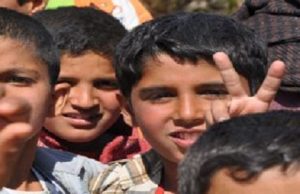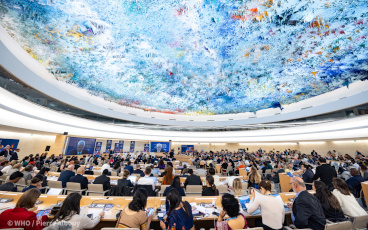Amid conflict and displacement, children in Syria receive protection against disease
Polio and measles vaccination campaign targets 2.5 million children

6 December 2012 – A vaccination is underway in Syria to immunize children under 5 against polio and measles.
The campaign is being implemented by the Ministry of Health (MoH) with support from the World Health Organization (WHO) and the United Nations Children’s Fund (UNICEF). In addition to the vaccines provided by MoH, UNICEF procured 1.5 measles vaccines and WHO provided doses of infant paracetamol and multivitamin syrup. The Ministry of Health has increased its advocacy messages in the media to create awareness about the campaign throughout the country.
Field staff members working on the campaign have reported that some areas where the children live are inaccessible due to the ongoing conflict. Othman Mohamed, field worker and supervisor of the Damascus field teams said that despite restrictions in accessibility, the teams have so far managed to reach all children targeted to date. There are 8 mobile teams responsible for the vaccinations in Damascus, including one dedicated to reaching IDPs living in shelters. Mohamed reports that an average of 12 000 children are being vaccinated daily by the mobile teams, as well as in health centers and preschools in the city.
Syria’s total under-five population is almost 2.5 million children and the aim of the campaign is to reach every child, vaccinating all children below the age of five against polio and 2 million children against measles.













